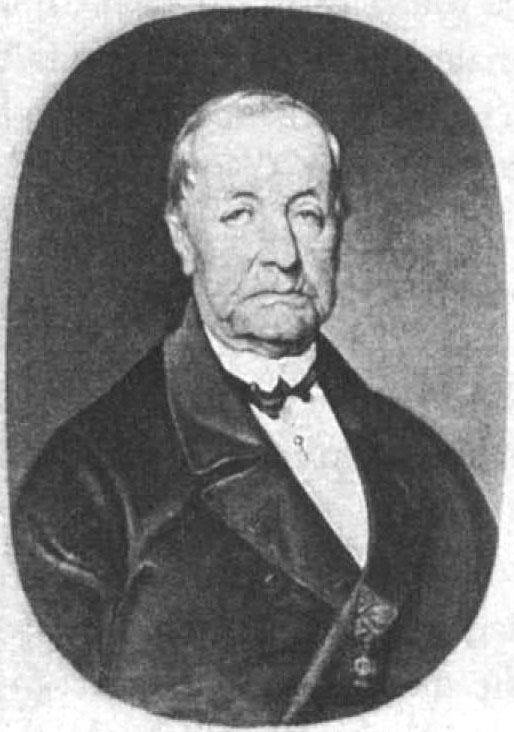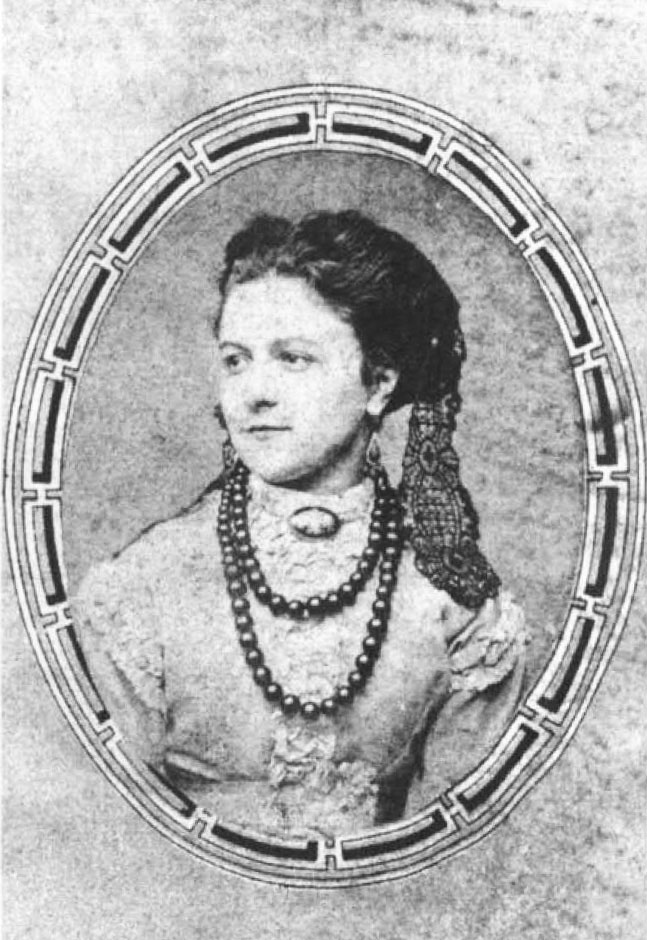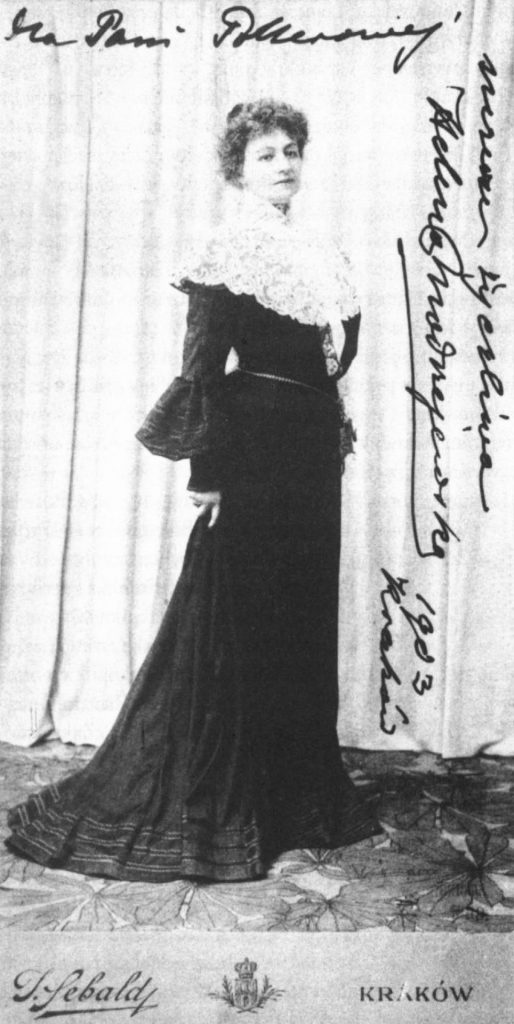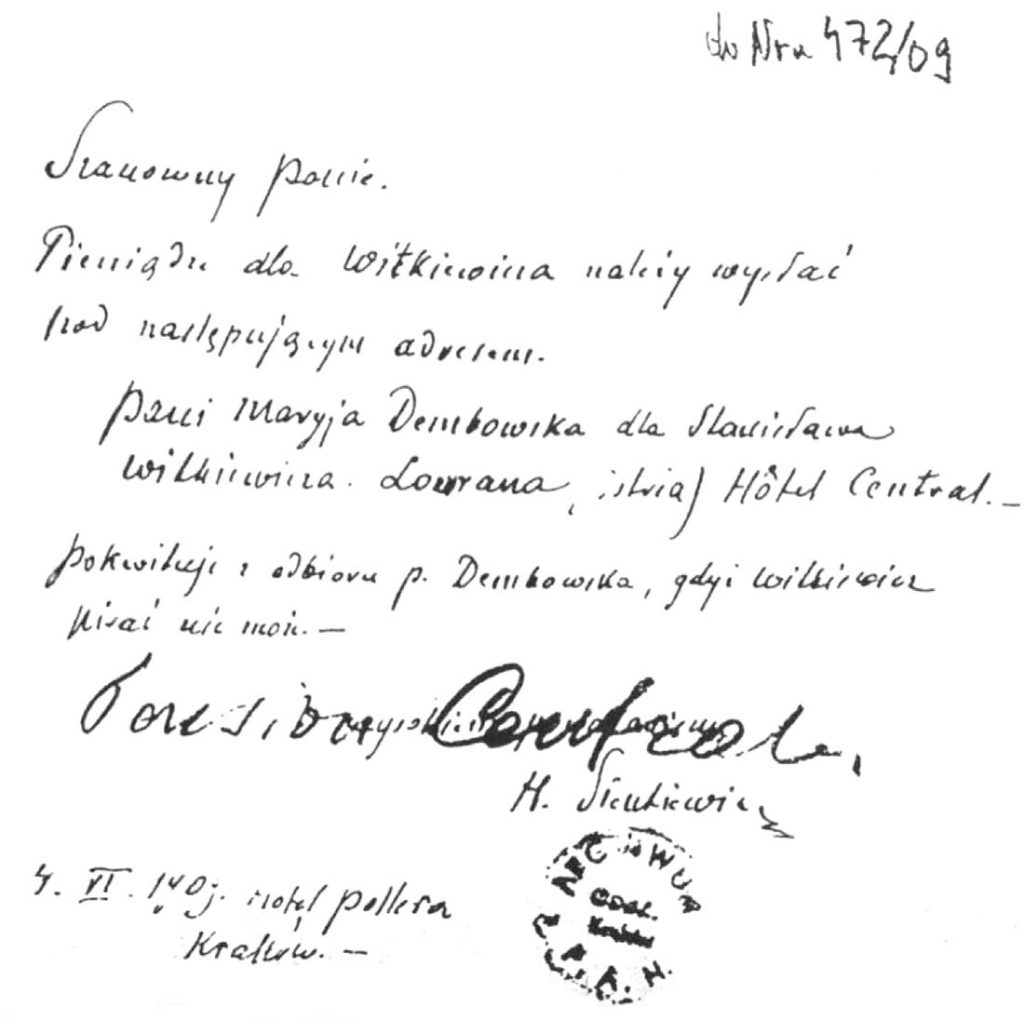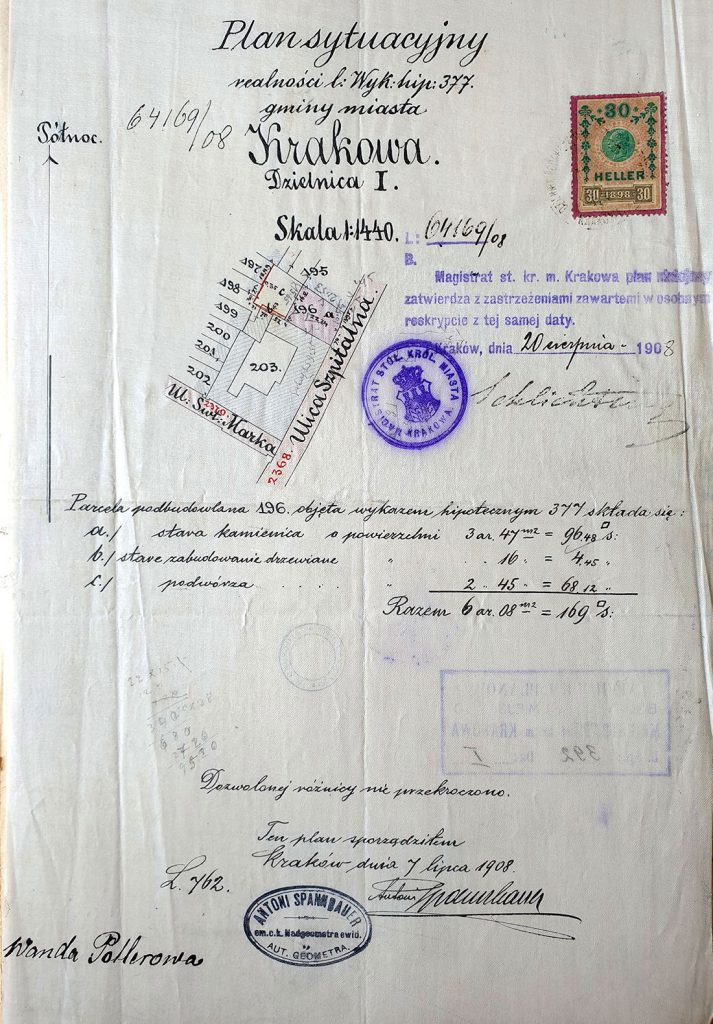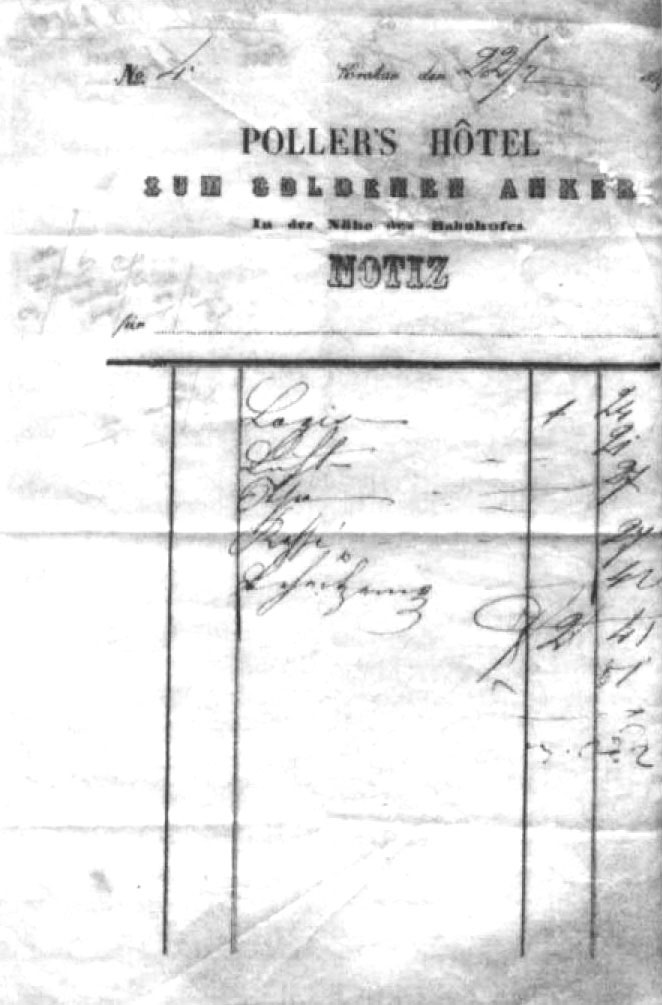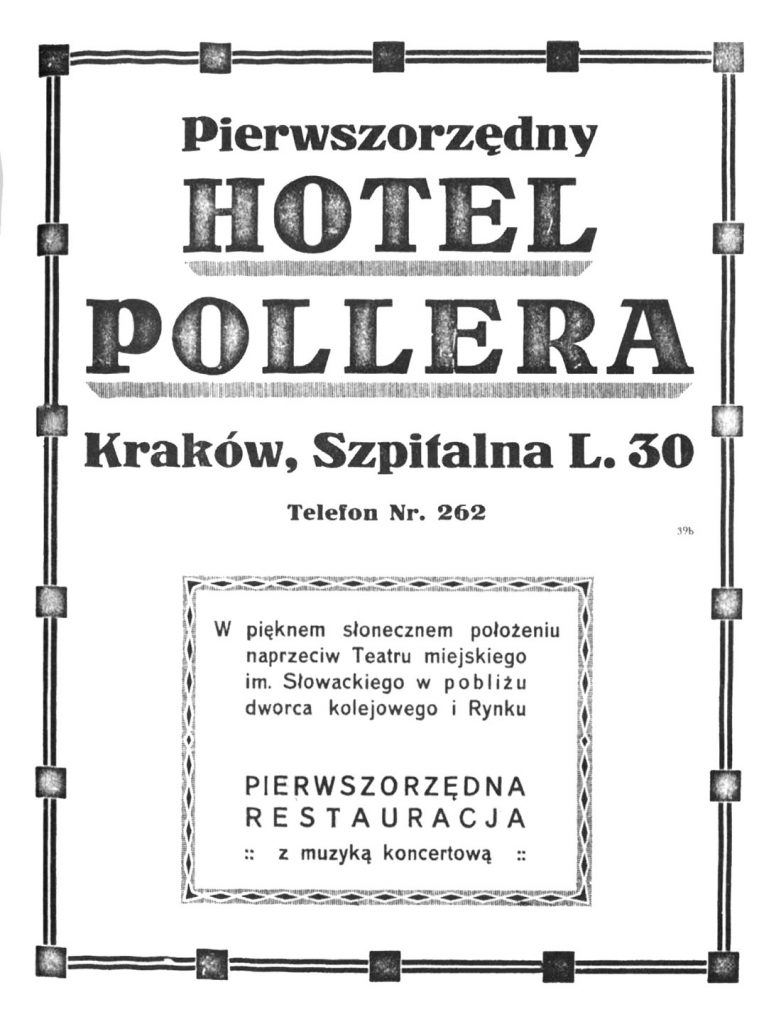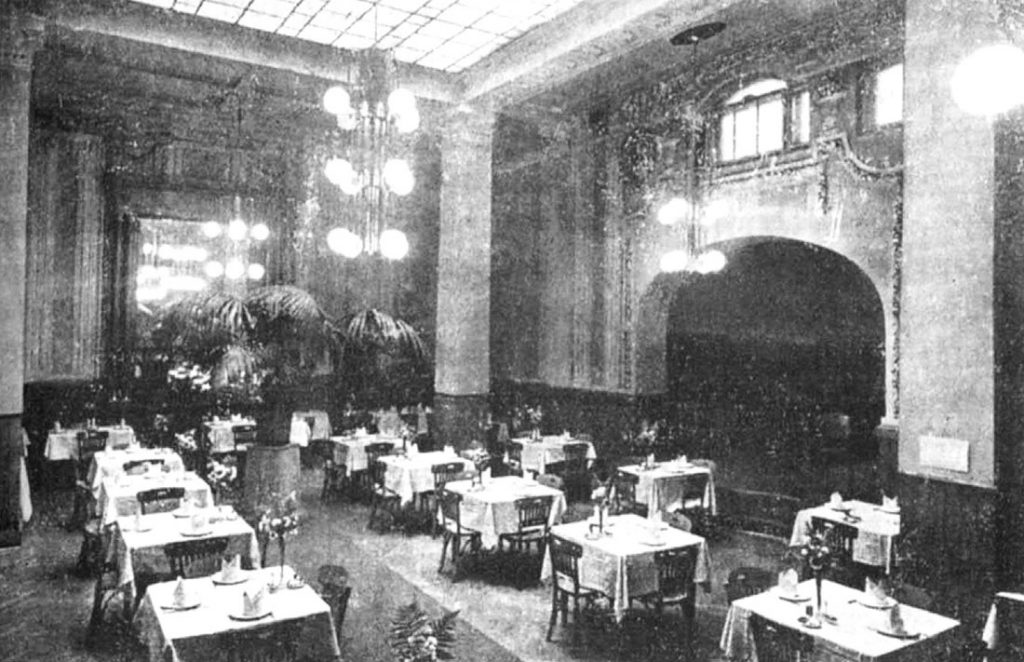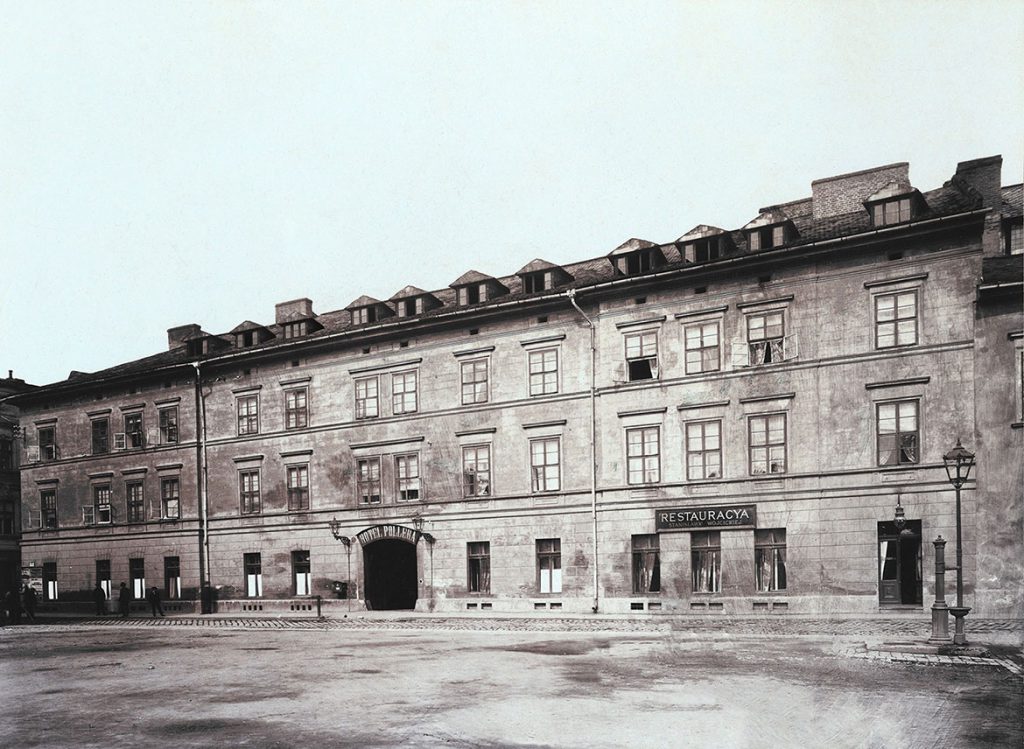
The year 1834 – the early days of our hotel.
The history of our hotel dates back to 1834, when Kasper Poller bought the tenement building at 30 Szpitalna Street, where he then set up the “Pod Złotą Kotwicą” (Golden Anchor) Inn. Since his cooking skills were superb, the place became popular among the Krakow elite.
The owner quickly came into wealth and decided to arrange guest rooms in the first floor. In 1844, he bought an additional corner plot and expanded the business. Kasper Poller personally looked after every aspect of his enterprise until the end of his life. Shortly after his death, his son Adolf took over the family business together with his wife Wanda.
At the turn of the centuries the tenement building at Szpitalna 30 was developed, where the hotel restaurant has been located ever since. The whole complex underwent renovation during the Art Nouveau period. Wooden cloisters in the backyard were substituted with internal hallways and a representative staircase in the central point of the hotel. Two stained glass windows designed by Stanisław Wyspiański and manufactured in the workshop of Stanisław Gabriel Żeleński were placed at the landings of the stairs. They have been the hotel’s showcase ever since that moment.
Back then, the hotel and restaurant were a significant place on the map of both the Krakovian and Polish culture. Thanks to Wanda Poller, who invited stage actors from other cities, eminent actors were able to perform in Krakow theaters. It was the Poller’s hotel where Stanisław Wyspiański and the actors went after the premiere of his famous play “Wesele” (“The Wedding”). The apartment of Wanda Poller at 32 Szpitalna Street was equally important, since the crème de la crème of the Krakow society – doctors, lawyers, traders and scientists – were common guests at her exquisite parties.
The turbulent history of Hotel Pollera was linked with the course of the historical events. In the interwar period, it was one of the most reputable hotels in Krakow, but during World War II, it was seized by the Nazi authorities. However, the hotel was still managed by Wanda Poller and members of the Chojnacki family, who were inheritors of the estate. Despite the risk, it was here where parts of the collections of the Jagiellonian University Faculty of Theology and of the Jagiellonian Library were stored, along with the weapons and paraphernalia of the Kozienice Forest partisan troops. After the liberation of Polish territories, the hotel served as the Red Army headquarters for a short time.
In 1950 – shortly after it had been reclaimed by its legal owner – the hotel was nationalized. This led to not only the precious works of art being destroyed or stolen, but also – due to a lack of renovation works – to a slow deterioration of the building itself. After decades of neglect, the building was reclaimed by its heirs in 1990, and a thorough renovation brought back the old charm and turned it into one of the most elegant hotels in the city.
The hotel has always accommodated the most excellent guests: stage actress Helena Modrzejewska was one of the regular customers, who stayed in the same room at the Poller’s hotel whenever she visited the nearby Juliusz Słowacki Theatre. Among other prominent guests were famous writersHenryk Sienkiewicz andStefan Żeromski, Emperor of Austria Franz Joseph I, Marshal Józef Piłsudski, stage actor Ludwik Solski, poet Lucjan Rydel, and painter and poet Stanisław Wyspiański. In more recent times, the guests included actor Andrzej Seweryn, actress Beata Tyszkiewicz, President Ryszard Kaczorowski, singer and songwriter Wojciech Młynarski, satirist Jacek Fedorowicz, singers Edyta Geppert and Natalia Kukulska, and the papal entourage during the pastoral visit of John Paul II in 1997. The Pollers’ restaurant was visited by painter Jacek Malczewski and stage actor Juliusz Osterwa.
